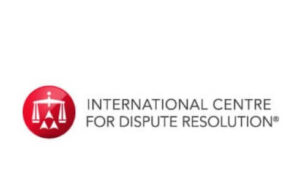Few areas of US law are as committed to enforcing private dispute resolution as the Federal Arbitration Act (“FAA”). Since its enactment in 1925, the FAA has required courts to treat written arbitration agreements as “valid, irrevocable, and enforceable,” and it has repeatedly been invoked to pre-empt state laws or judicial doctrines perceived as hostile […]
United States Arbitration
U.S. Supreme Court Clarifies Personal Jurisdiction in Foreign Sovereign Immunities Act Arbitration Enforcement Cases
On 5 June 2025, the United States Supreme Court issued a unanimous decision in CC/Devas (Mauritius) Ltd. v. Antrix Corp. Ltd., resolving an important procedural question in award enforcement against foreign states and their instrumentalities. Writing for the Court, Justice Alito held that when the Foreign Sovereign Immunities Act (FSIA) applies, federal courts do not […]
Mass Momentum: What’s Next for Mass Arbitration?
In recent years, mass arbitration has emerged as a novel and often controversial tool within United States (U.S.) domestic arbitration. These proceedings occur when a large number of similar individual claims are filed against the same respondent, often a large corporation, creating a high-stakes environment where respondents are forced to either pay substantial administrative fees […]
Which Foreign Investors Could Sue Trump’s United States in Arbitration?
Since taking office for the second time, President Trump has unleashed a torrent of executive orders aimed at reshaping America’s legal and political landscape — from immigration and climate change to trade, civil rights, energy policy, and tariffs.[1] His unpredictable approach to governance has sparked domestic and international concerns, particularly among foreign investors who may […]
Document Production in International Arbitration
Document production is one of the most controversial yet essential steps in international arbitration. Since cases are generally decided based on documents rather than oral testimony, document production can be a powerful tool for discovering evidentiary material crucial to winning an arbitration.[1] It is not surprising that arbitral proceedings commonly include a document production phase. […]
Security for Claims in International Arbitration – Preble-Rish Haiti v. BMPAD
In international arbitration, security for claims, also called security for payment,[1] belongs to a category of interim or provisional measures that can be sought prior to the issuance of the final award. If granted by the arbitral tribunal, it consists in “a kind of advance payment designated to guarantee the payment and/or enforcement of the […]
ICDR 2021 Rules Amendments
The rules of the International Centre for Dispute Resolution (“ICDR”) of the American Arbitration Association (“AAA”) entered into force in 1998. They were first revised in 2014. Seven years later, the ICDR issued a revised set of rules effective on 1 March 2021. In line with the recent revisions of institutional arbitration rules in Europe,[1] […]
Depositions in International Arbitration
Depositions in international arbitration are rare but do occur. A deposition is defined as “[a] witness’s out-of-court testimony that is reduced to writing (usually by a court reporter) for later use in court or for discovery purposes”.[1] While depositions are generally associated with American pre-trial discovery, they are called for in a surprising number of […]
Aceris Law Successfully Resolves Dispute in Solar Industry
Aceris Law is pleased to announce that it has successfully resolved another long-running international dispute, in the solar industry, between American and East Asian businesses. The dispute, which was subject to various laws of the United States, concerned a joint venture to produce solar panels and involved disputed exclusivity provisions, intellectual property disputes, disputed non-compete […]








